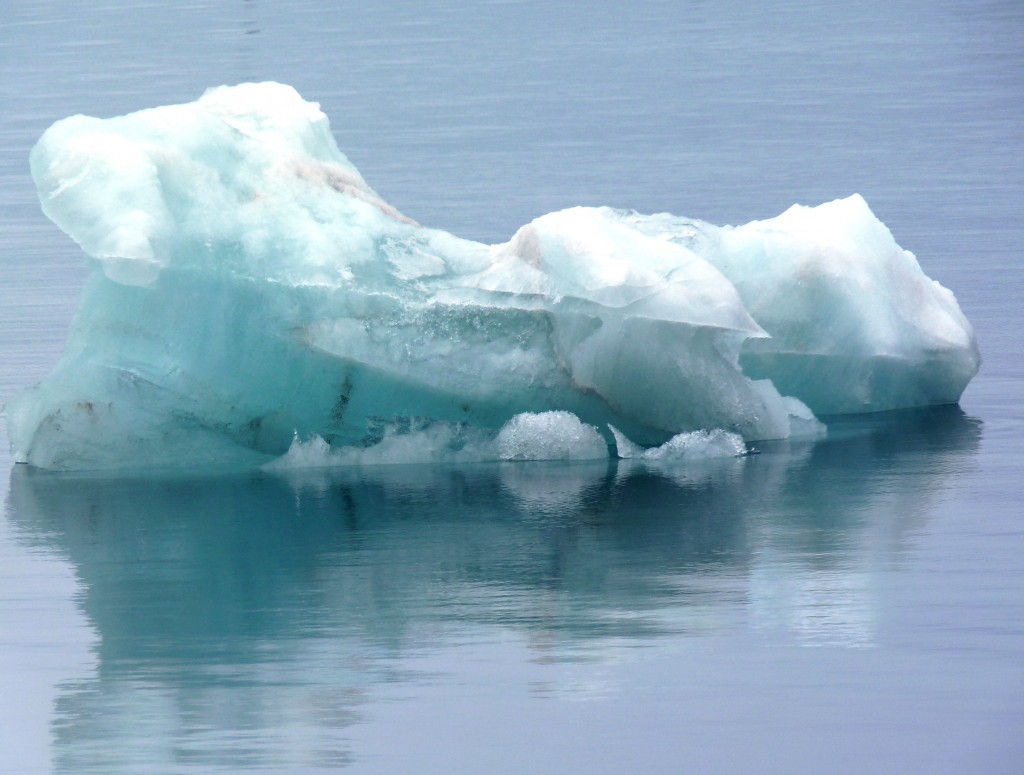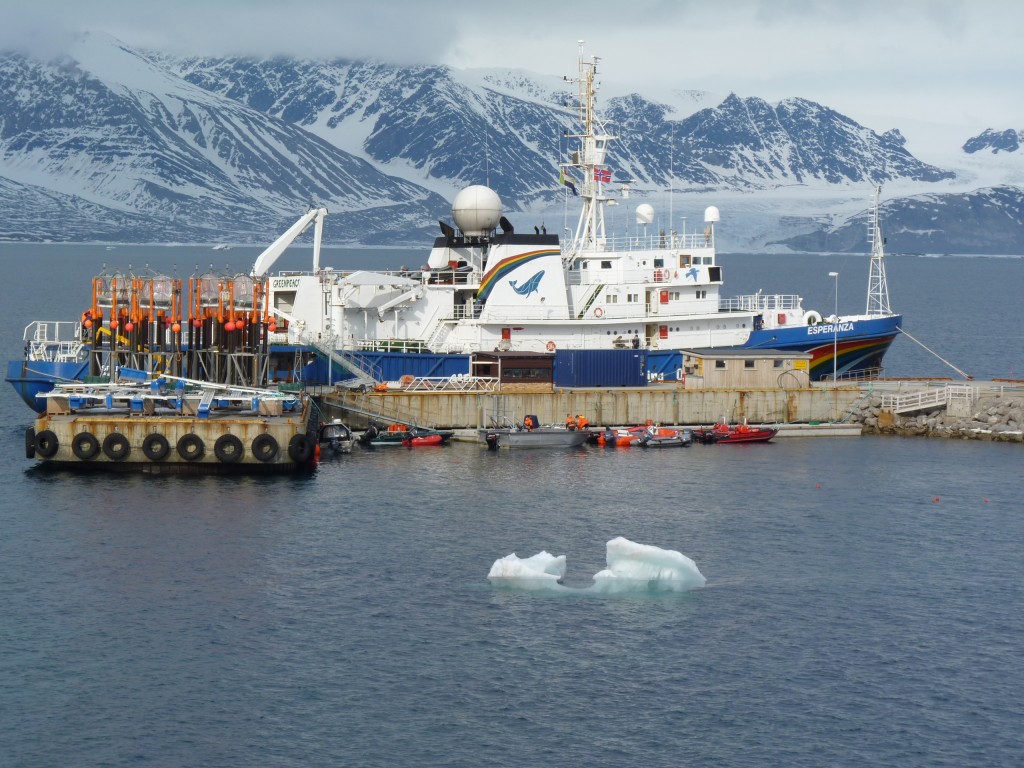Search Results for Tag: Greenpeace
Arctic Council disappoints Greenpeace,WWF
Environment ngos have expressed disappointment at the outcome of the Arctic Council meeting in Kiruna on May 15th. Too little action and too slow, seems to be the consensus.
Alexander Shestakov, Director of WWF’s Global Arctic Programme said: “We are disappointed that the Council is not moving faster to address such urgent issues as preventing oil spills, and reducing the impacts of regional and global climate change.” Shestakov says the issues have been placed on the “back burner” for two years, and “the pace of change in the Arctic does not allow for a two year time-out.”
Greenpeace International senior policy advisor Ruth Davis said: “Throughout this meeting, the evidence from scientists and Indigenous Peoples has highlighted the devastating impacts of our fossil fuel addiction on the Arctic. Yet the Council seems in the thrall of business interests wishing to extract more oil and gas, whatever the costs to local people, wildlife and the future health of the planet”.
- Endangered species
Oil spill response
An oil spill response agreement was officially signed at the Kiruna meeting. WWF has official observer status and was involved in drafting the agreement. The organisation says it “will be watching to ensure that the agreement is effectively implemented”.
Greenpeace (whose request for observer status was turned down at the meeting) is highly critical of the “Cooperation on Marine Oil Pollution Preparedness and Response in the Arctic Agreement”, signed in Kiruna. Greenpeace says “it includes no specific practical minimum standards that governments must adhere to, and has no provisions to hold companies liable for the full costs and damages of a spill should one occur”. Greenpeace had leaked the draft document back in February, saying it was “disappointingly weak”.
Black carbon
The other key issue environmentalists would like to have seen progress on is black carbon or soot. WWF says Russia blocked negotiations on an agreement to tackle black carbon, which is produced by burning diesel and other fuels and is blamed for increasing the melting of Arctic ice and snow.
Greenpeace sees a wide gap between the “firm recommendations from its (Arctic Council’s) own scientists based on the Council-commissioned reports on ocean acidification and the impact of climate change on biodiversity”, and the “lack of any meaningful action”. That gap between evidence and recommendations from scientists and real political action, it seems to me, becomes even clearer looking at the wider cause of climate change in the Arctic and around the globe – human-made emissions of greenhouse gases. Without rapid action from the main emitters (one is a member of the Arctic Council, another has just been given observer status), it seems more than likely the Arctic as we know it will not exist for much longer. As I have written here before – “you can’t have your ice and melt it“. Can you?
10 years French-German Arctic Station
Congratulations to the team of the joint French-German Arctic research station in Ny Alesund, Svalbard. It is ten years since the German polar authority AWI (Alfred-Wegener Institute for Polar and Marine Research) and its French counterpart IPEV (Institut Polaire Paul Emile Victor) joined forces at the world’s northernmost research base.
The station was my first Arctic destination in 2007, so it has a special significance for me. During the IPY, I was involved in an international radio cooperation to report on polar science, which was how the Ice Blog was born.
Photo gallery from Ny Alesund, “From Pole to Pole”.
AWIPEV is the biggest of the research stations in Ny Alesund, and takes up to 150 scientists from France and Germany in the course of a year.
I visited again in 2010 with a team looking at ocean acidification. Their equipment was transported up by the Greenpeace ship Esperanza, a “first” in terms of cooperation between scientists funded by the EU’s EPOCA programme and the environment group. Greenpeace offered the ship to help out when none of the scientific research vessels was available for the project.
The station has also just been the first to be officially approved by the climate data network GRUAN. Not a terribly attractive acronym, but definitely easier to say/write than the whole title: Global Climate Observing System Reference Upper Air Network. Basically, the idea is to standardize and the measurement of climate parameters around the world so that the figures are really comparable. It was initiated by the World Meteorological Organization, the Intergovernmental Oceanographic Commission, UNESCO, UNEP and the International Council for Science.
Keep up the good work everyone up there at AWIPEV.
“Penguins” ask Berlin to save Antarctic
Today, it seems, is World Penguin Day. If you happened to be in the German capital, Berlin, this would have been drawn to your attention by largish “penguins” visiting the embassies of Russia, China and Norway, as well as the German Agriculture Ministry, which, it may surprise you to know, is responsible for the protection of the Antarctic on behalf of the German government
Activists from “The Antarctic Ocean Alliance“, (AOA) made use of the occasion to draw attention to the need to protect the pristine ice region at the south of the world. The background is that Germany will be host to a meeting of the Commission for the Conservation of Antarctic Marine Living Resources (CCALMR) in July this year. The meeting, in Bremerhaven, home of Germany’s Alfred Wegener Institute for polar and marine research, will be discussing the possible creation of two Marine Protected areas (MPAs) in the Antarctic. The alliance, made up of WWF, Greenpeace, Deepwave, Whale and Dolphin Conservation (WDC) and others, is calling on Germany to play a leading role and on other key countries to support a decision in favour of the protected areas.
Steve Campbell, Campaign Director of the AOA, stressed Germany’s long tradition of scientific polar research and the key role the country could play in Antarctic protection. The alliance stresses that the Southern ocean is under increasing pressure from climate change and resource depletion. The areas the AOA want protected now are described by the campaigners as one of the world’s last wildernesses and an essential “living laboratory” for the planet.
No Arctic Council meeting for Greenpeace North Pole trekkers
A group of young campaigners have been trekking to the North Pole this week, as part of the Greenpeace campaign to “Save the Arctic“. There are 16 people in the group, including four international youth ambassadors : Hollywood actor Ezra Miller, two Arctic Indigenous representatives and a young man from the Seychelles . I was hoping to be able to report here on the Ice Blog that they had met with members of the Arctic Council who were also to visit the North Pole this week. But for reasons yet to become clear, the meeting didn’t happen.
One of the explorers, Josefina Skerk, a 26-year-old member of the Sami Parliament in Sweden, had sent a letter to Gustaf Lind, Swedish chair of the Arctic Council’s Senior Arctic Officials, requesting a meeting with the Arctic officials, when they heard they would be at the North Pole at the same time. Mr. Lind apparently accepted the invitation, but the meeting did not take place. There is an amazing multimedia website for the project, where you can follow the expedition and find out about the trekkers and their motives: Into the Arctic. One of the girls says her hands are freezing but her blood is boiling because the meeting didn ‘t work out. But you can see and hear all that for yourselves on the site.
The activists say “no one nation should own the Arctic or be allowed to exploit the melting Arctic sea ice, a crisis created by climate change, for more of the fuels that caused the melt in the first place”. The trekkers are carrying with them a time capsule that contains a declaration with 2.7 million signatures calling for the Arctic to be made a global sanctuary. Greenpeace says they plan to lower the capsule and a ‘Flag for the Future’ through 4.3 km of freezing water to the seabed beneath the North Pole.
Some of those signatures were collected here in Bonn, as reported on the ice blog and DW radio and online pages at the time:
UNEP concerned about Arctic melt
The UN Environment Programme (UNEP) has issued a warning that last year’s record shrinkage of the Arctic sea ice highlights the risks climate change brings for the planet. The annual review of the state of the world’s environment was presented in Nairobi this week during an ongoing high-level ministerial meeting.
UNEP said the summer sea ice in the Arctic had covered a record low area of 3.4 million square kilometers, 18 percent below the previous recorded minimum in 2007 and 50 percent below the average for the 19802 and 1990s. The report also mentions melting land ice in Greenland and melting permafrost in high latitudes. The figures are not new, but it is significant that UNEP should highlight the Arctic and the fact that no action is being taken in reaction to the evidence which clearly shows climate-change-induced melting.
“Changing environmental conditions in the Arctic, often considered a bellwether for global climate change, have been an issue of concern for some time, but as of yet this awareness has not translated into urgent action”, UNEP Executive Director Achim Steiner said presenting the report on Monday. He warned that the rush to extract oil and gas from the Arctic seabed as the ice retreats could lead to even higher emissions of greenhouse gases.
“What we are seeing is that the melting of ice is prompting a rush for exactly the fossil-fuel resources that fuelled the melt in the first place”, said Steiner.
Now this is a sentiment Greenpeace, WWF Arctic and other groups have been expressing for years. Here we have it from the world’s key environment watchdog.
“The rush to exploit these vast untapped reserves has consequences that must be carefully thought through by countries everywhere, given the global impacts and issues at stake”.
Meanwhile, this week, Russian President Vladimir Putin signed the country’s “strategic program on Arctic development up to 2020. Enough said?
For anyone who wants to catch up on the Arctic development story, here are a few links.
Polar ice sheets melting faster than ever
Business opportunities boom in the Arctic
Sea levels rising faster than expected
China’s Arctic ambitions spark concern
Energy giants cooperate for Arctic resources


























Feedback